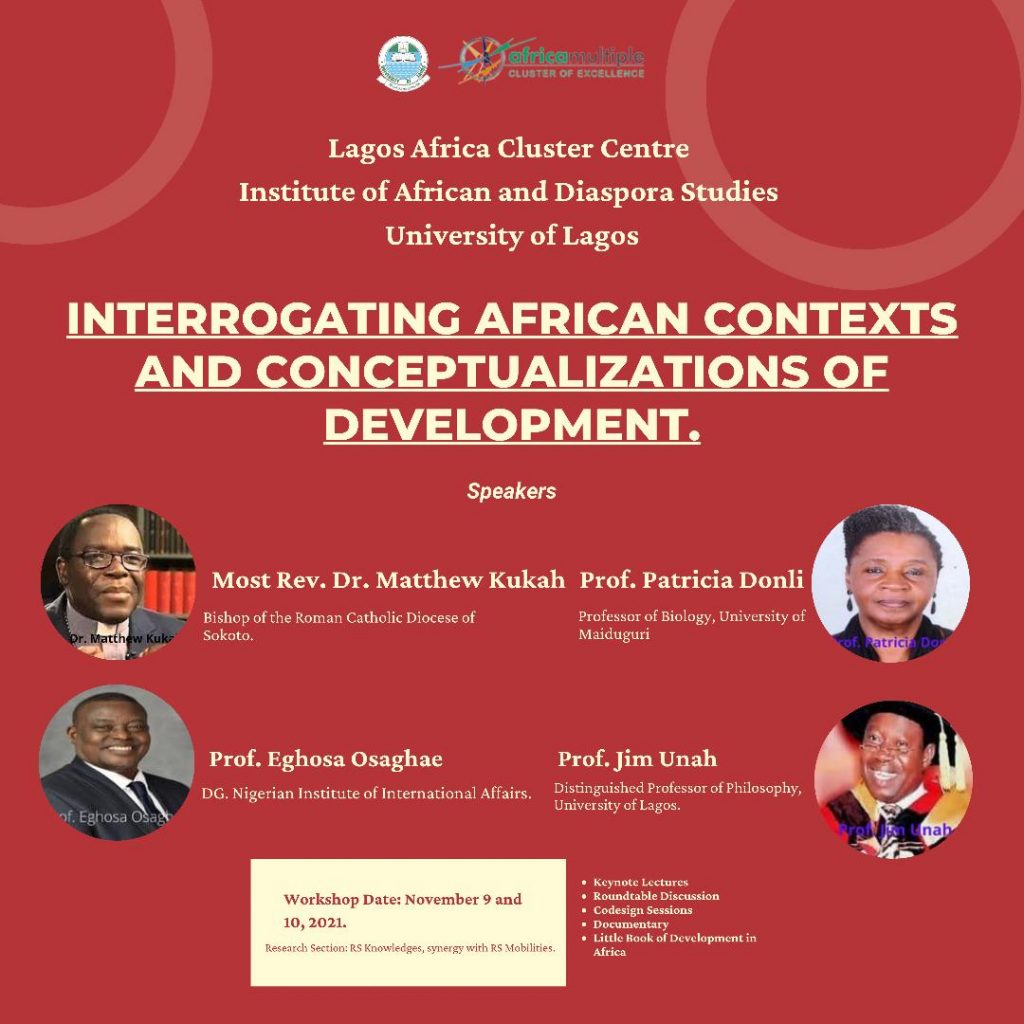Through the years, professionals and researchers have developed a number of definitions and emphases for the term “development.” For example, a professor of economics – Amartya Sen in his 1999 book, Development as Freedom, described development as a tool enabling people to reach the highest level of their ability, through the granting of freedom of action, i.e., freedom of economic, social and family actions, etc. In contrast, Paul Collier – also a professor of economics – in his 2009 book, Wars, Guns and Votes proposes that ‘development’ can be advanced by limiting the freedoms of the so-called bottom billion (many of whom are in Africa) through international governance and military interventions. For Walter Rodney, development is considered as a hydra-headed process in human society. Distinction was made between development at individual level and at the societal level. Rodney describes development to feature diverse status in different praxis of human endeavour, some which are difficult to evaluate. The realisation of the different description of development is said to be tied with the societal realities. It is therefore imperative that the reaction of African society to development be examined in order to understand and address the various developmental challenges facing the African continent.
The World Bank and other international agencies have proposed various strategies for achieving and/or leapfrogging development in Africa. Oftentimes, they include recommendations for adopting approaches that may have worked in the Global North such as megaprojects, privatization, smart cities and the 4th Industrial revolution. They sometimes result in unintended consequences including extensive land grabs, forced evictions, exacerbating poverty and social exclusion etc. As such, it is important for researchers to take a closer look at the intricacies, contents and contexts of these development calls and how they impact Africa’s people and identities.
Lived realities of Africans (at home and in the diaspora) may also impact their definitions of development (Lawanson, 2013). The African Union (AU) defines the African diaspora as consisting ‘of people of native African origin living outside the continent, irrespective of their citizenship and nationality and who are willing to contribute to the development of the continent and the building of the African Union’. The African diaspora is approximated to be 140 million people in the Western Hemisphere (Lituchy, 2019). In 2018, the African Diaspora was estimated at over 46 million people in the United States (World Factbook, 2018), with more recent waves of migration to Canada, Australia, New Zealand and United Arab Emirates. It is on record that the African diaspora has made significant contributions to pan-Africanism, economic development and even governance and democracy.
Therefore, the aim of the intellectual engagements (workshop and related activities) is to (re)interrogate the conceptualizations and implementation of the ‘Development Agenda’ in Africa. We focus on these questions:
- What does Development mean in real terms to Africans?
- How is development defined/measured through scholarly and disciplinary lenses?
- Do opinions on development vary across local and diasporic settings?
- Who are the winners and losers in the current conceptualizations?
- What is the appropriate framing for Africa’s development and/or African Development?
The project builds on Taibat Lawanson’s works (2013, 2020, 2021) in which the conflicting rationalities of development at the urban scale are highlighted. Across various case studies of Nigerian cities, this has resulted in rising discontent with urban (re)development and governance processes. And on Abisoye Eleshin’s creative work (2011), the concept of the understanding of African aesthetics is highlighted in pageant production. The work presents an ideology of the Africans regarding the female anatomy and idiosyncrasies, in contrast to the expectations of the Global North. We now seek to advance the discourse beyond the limited disciplinary dimensions, and also beyond the Nigerian geographic landscape.
The project aligns with the cluster objectives in the following ways:
The project will provide an opportunity to revisit seemingly universal themes and subject them to reflexive evaluation from an African perspective and across scholarly and practice dimensions. The critique of the Development Agenda will open up a new vista for redefining and/or reconfiguring the conceptual underpinnings of African studies
The project is made up of multi-layered processes, whose methodology seeks to transcend traditional empirical domains. Participants will be drawn from different disciplines as well as different African cities and beyond. The multiplicity of outcomes will be showcased in bringing data and findings from various perspectives and lived experiences, with an opportunity to scale or replicate with regards to other ‘universal’ concepts that impact Africa differently. The project outputs will also be easy to access and understand by a general audience
The project will provide new insights for two Research Sections within the cluster. RS on Knowledges will examine the concept of ‘Development’ and attempt to tease out an appropriate framing for Africa’s development and/or African development. RS on mobilities will examine the multiple ‘development’ realities of Africans on the continents and in the diaspora.


